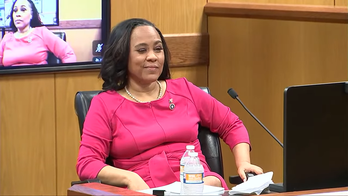DOVER, Del. – Citing an increasing danger to the public, Delaware authorities on Friday imposed an emergency rule outlawing products being marketed as "bath salts" but that are often used by some people to get high.
The rule was signed by Secretary of State Jeffrey Bullock following an emergency meeting convened at his request of the Controlled Substances Advisory Committee.
The emergency rule bans the sale or possession of three chemicals -- mephedrone, methylone, and methylenedioxypyrovalerone, or MDPV -- used in products marketed under such names as "Purple Wave," "Vanilla Sky" and "Bliss."
Authorities said the chemicals can mimic the effects of cocaine, LSD and methamphetamine.
"People are getting sick, suicidal and very, very violent," said Gov. Jack Markell, adding that hospitals in Delaware have seen a sharp increase over the past month in patients who have ingested bath salts.
"These drugs present a danger to public safety," Markell said.
Authorities say the bath salts are often smoked, snorted or injected and can cause impaired perception, hallucinations, reduced motor control, chest pains, disorientation, extreme paranoia, agitation, and violent episodes.
Bullock said the ban, which takes effect immediately, will remain in effect for 120 days until lawmakers can enact a permanent ban after they convene a new legislative session in January.
The new state rule is similar to a federal ban imposed by the U.S. Drug Enforcement Administration three weeks ago. The DEA ban will last at least a year, during which time the government will determine whether it should permanently control the chemical compounds.
Markell spokeswoman Cathy Rossi said the state rule was needed because the federal ban would allow only federal agents, not local law enforcement, to act.
Deputy attorney general Brian Robertson said that under the new rule, bath salts will be in the same class of illegal drugs as heroin, LSD and Ecstasy. Possession of bath salts would be a misdemeanor, while possession with intent to distribute could bring a felony charge, he said.
In July, Markell signed a bill extending a state program that provides clean hypodermic needles to drug addicts in Wilmington.
Rossi said the needle exchange bill was about managing and treating people addicted to illegal drugs, while the emergency rule on bath salts was about making a dangerous but legal substance illegal.
"People with problems with illegal substances should receive treatment," she said.
Markell said state Sen. Bethany Hall-Long, D-Newark, approached the administration about a month ago to discuss a ban on bath salts, and that a meeting on the issue was to have been held this week.
But with emergency room visits related to bath salts spiking, officials decided they could not wait.
"There were so many incidents over this past month, ... it was clear we had to take this unprecedented step," Markell said.
Markell's office, however, could not provide information on how many emergency room visits related to bath salts had been documented by hospitals.




